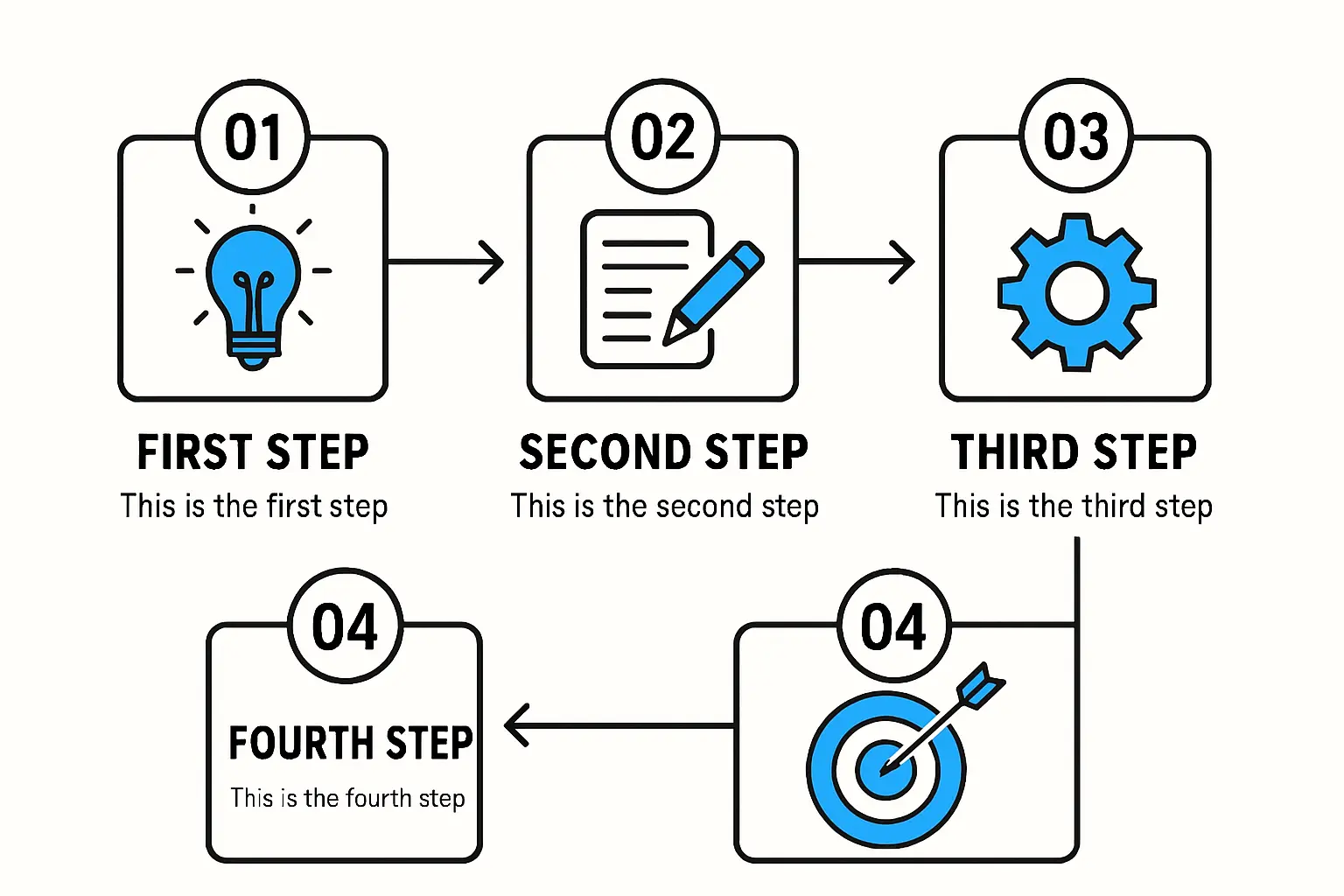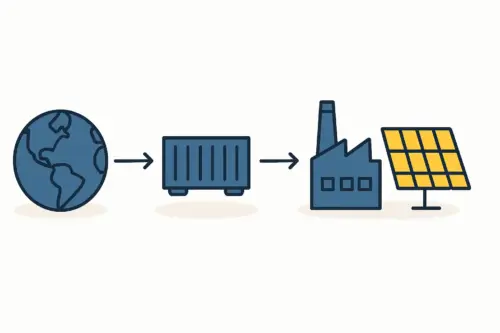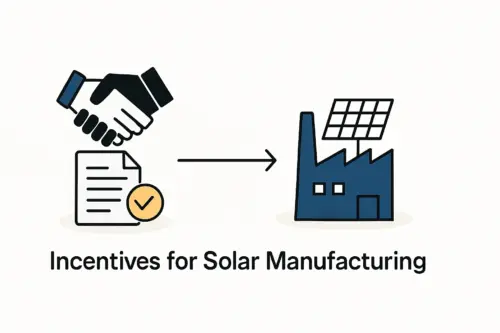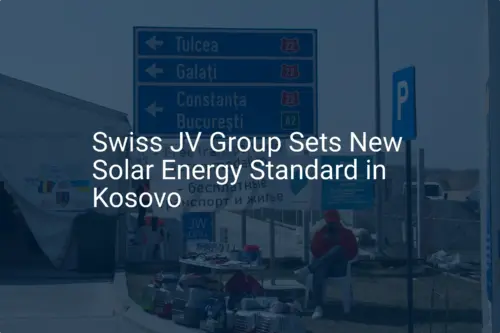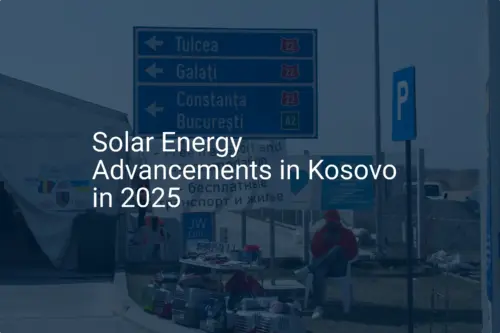For the international investor, Kosovo represents a compelling opportunity: a strategic position in the Balkans, a young and motivated workforce, and a government actively seeking foreign capital, particularly in the renewable energy sector. However, turning the vision for a solar manufacturing plant into an operational reality requires navigating a unique administrative landscape. Many entrepreneurs find this stage, filled with permits and licenses, to be the most opaque part of the journey.
This guide breaks down the essential administrative steps for establishing a solar module factory in Kosovo. It is designed for business professionals who are experts in their own fields but new to the specifics of industrial setup in this region. While the process is detailed, it follows a logical path and, with the right preparation, can be managed efficiently.
The Foundation: Registering Your Business in Kosovo
Before any land can be acquired or equipment ordered, your enterprise must have a legal identity in Kosovo. This initial step is handled by the Kosovo Business Registration Agency (KBRA), a streamlined body designed to make market entry straightforward.
For most foreign investors, establishing a Limited Liability Company (Sh.P.K.) is the most common and practical route. This structure shields the personal assets of the owners from the company’s liabilities—a standard and prudent measure for a significant industrial investment.
The registration process typically requires:
- Application Forms: Standardized documents provided by the KBRA.
- Founder Identification: Notarized copies of passports for all founders.
- Business Address: A registered physical address in Kosovo.
- Appointment of a Director: Naming the individual responsible for the company’s operations.
Experience from J.v.G. turnkey projects shows that having all documentation prepared and correctly notarized in advance can reduce the registration timeline from weeks to a matter of days. This initial step is a prerequisite for all subsequent permits and financial transactions.
Securing the Physical Site: Land and Construction Permits
Once your company is legally registered, the next phase involves securing a location and obtaining the necessary permissions to build. This process is managed at the municipal level, so requirements can vary slightly depending on the chosen location. Engaging with local municipal authorities early is a critical step.
The Municipal Construction Permit (MCP)
The key document for your building phase is the Municipal Construction Permit. This permit is granted by the urban planning department of the municipality where your factory will be located. The application is comprehensive and serves as the blueprint for official approval.
Key components of the application package include:
- Proof of Land Ownership or Lease: Clear legal title to the proposed site.
- Detailed Architectural and Engineering Plans: These must conform to Kosovo’s building codes and safety standards.
- Geodetic Survey of the Land: An official survey mapping the plot’s boundaries and topography.
- Evidence of Utility Connections: Plans for connecting to water, sewage, and the electrical grid.
Ready to make big Profits?
The solar Industry is Booming
WE HELP NEWCOMERS to the solar industry start their own solar module production line. Customers can make BIG PROFITS by selling modules and finding investors, without wasting money and time on things they don't need!
A frequent challenge for investors is ensuring their engineering plans fully comply with local regulations. Working with a local architect or engineering firm familiar with municipal requirements is often the best way to avoid lengthy revisions. Understanding these requirements is fundamental to a successful project launch, a topic further explored in the guide on How to Start a Solar Panel Factory.
Navigating Environmental Compliance
For any industrial project, environmental authorization is a non-negotiable step. In Kosovo, the Ministry of Environment, Spatial Planning, and Infrastructure (MESPI) oversees this process. A solar panel manufacturing facility, due to its scale and processes, will almost certainly require an Environmental Impact Assessment (EIA).
An EIA is not merely a formality; it is a detailed study analyzing the potential environmental effects of the factory during its construction and operation. The report must outline:
- The current environmental state of the proposed site.
- Potential impacts on air quality, water resources, soil, and local biodiversity.
- Mitigation measures to minimize any negative effects, such as waste management systems or water recycling protocols.
The EIA process includes a public consultation phase, followed by a review from a MESPI expert committee. Successful approval grants an Environmental Consent, a mandatory prerequisite for the final construction permit. This process can take several months, so it should be initiated as early as possible.
Finalizing Operational Licenses
With construction complete, the final administrative phase involves securing the licenses that allow the factory to begin operations. Often called ‘use permits’ or ‘operational licenses,’ these documents confirm that the facility was built according to the approved plans and meets all safety standards.
Inspections will be carried out by various bodies, including:
- Municipal Building Inspectors: To verify compliance with the construction permit.
- Fire Department: To approve fire safety and evacuation systems.
- Health and Safety Inspectorate: To ensure a safe working environment for employees.
Only after these inspections are passed and the corresponding certificates issued can the factory officially commence production. The efficiency of your machinery and layout, a key consideration for inspectors, can be better understood by reviewing resources on Choosing the Right Solar Manufacturing Equipment.
A Note on Kosovo’s Investment Climate
The Government of Kosovo has demonstrated a clear interest in attracting high-value foreign investments. The Law on Strategic Investments provides a framework for offering incentives to projects deemed strategic to the country’s economic development, particularly in sectors like renewable energy.
While not guaranteed, a well-structured proposal for a solar manufacturing plant that creates local jobs and contributes to energy independence may be eligible for benefits such as tax holidays, streamlined permitting, or long-term land leases. Exploring these possibilities requires a robust financial plan, a topic covered in detail in our guide to Financial Modeling for a Solar Factory.
Frequently Asked Questions (FAQ)
Do I need a local partner to establish a company in Kosovo?
No, a foreign national is not legally required to have a local partner. 100% foreign ownership of a Limited Liability Company (Sh.P.K.) is permitted. However, engaging local legal or business counsel can significantly expedite administrative processes.
What are the main government bodies an investor will interact with?
The primary agencies are the Kosovo Business Registration Agency (KBRA) for company formation, the relevant Municipality for construction permits, and the Ministry of Environment, Spatial Planning, and Infrastructure (MESPI) for environmental consent.
How long does the entire permitting process typically take?
Assuming all documentation is prepared correctly, the full process from business registration to receiving the final operational license can take between 9 and 15 months. The Environmental Impact Assessment is often the longest single component.
Are official documents and procedures available in English?
While Albanian and Serbian are the official languages, many government agencies, especially those dealing with foreign investment like the KBRA, provide forms and guidance in English. For legal submissions and contracts, however, certified translations are typically required.
What is the most common cause of delays in the permitting process?
The most frequent delays arise from incomplete or incorrect documentation, particularly with architectural plans that do not meet local building codes or Environmental Impact Assessments that lack sufficient detail on mitigation measures.
Conclusion: A Manageable Path Forward
Establishing a solar manufacturing plant in Kosovo involves a series of clear, sequential administrative steps. While the process requires meticulous preparation and attention to detail, it is neither arbitrary nor insurmountable. By understanding the roles of the KBRA, municipal authorities, and MESPI, an investor can chart a predictable course from initial registration to full-scale operation.
Success depends on treating the permitting and licensing phase with the same strategic focus as financing or equipment selection. With thorough planning and expert guidance, entrepreneurs can confidently navigate the regulatory landscape and position their venture for success in one of Europe’s most promising emerging markets.


